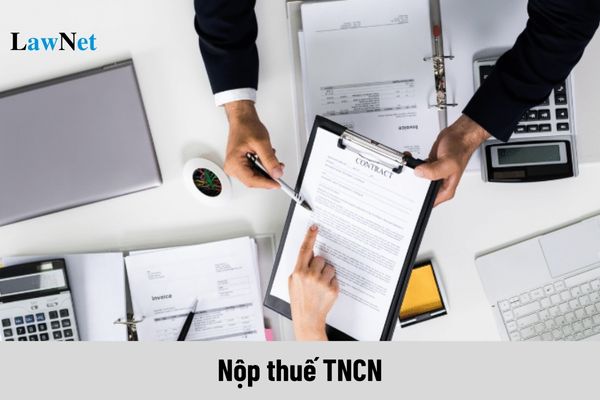Do shareholders have to pay personal income tax when transferring their shares to others in Vietnam?
Which shareholders may transfer their shares to others in Vietnam?
According to the provisions at point d, clause 1, Article 115 of the Law on Enterprises 2020 regarding the rights of ordinary shareholders as follows:
Rights of Ordinary Shareholders
1. Ordinary shareholders have the following rights:
a) Attend, speak at shareholder meetings, and exercise the right to vote directly or through authorized representatives or other forms as stipulated by the company's charter and law. Each ordinary share has one vote;
b) Receive dividends at the rate determined by the General Meeting of Shareholders;
c) Pre-emptive rights to purchase new shares corresponding to the proportion of ordinary shares owned by each shareholder in the company;
d) Transfer their shares to others, except as stipulated in clause 3, Article 120, clause 1, Article 127 of this Law, and other relevant legal provisions;
dd) Inspect, examine, and extract information about names and contact addresses in the list of voting shareholders; request corrections for their incorrect information;
e) Review, examine, extract or copy the company’s charter, the minutes of shareholder meetings, and resolutions of the shareholders' general assembly;
g) Upon the dissolution or bankruptcy of the company
...
Thus, ordinary shareholders have the right to transfer their shares to others, except as stipulated in clause 3, Article 120 of the Law on Enterprises 2020, clause 1, Article 127 of the Law on Enterprises 2020, and other relevant legal provisions.

Do shareholders have to pay personal income tax when transferring their shares to others in Vietnam? (Image from the Internet)
Do shareholders have to pay personal income tax when transferring their shares to others in Vietnam?
According to the provisions at clause 4, Article 2 of Circular 111/2013/TT-BTC (amended by Article 4 of Circular 25/2018/TT-BTC) on taxable income from capital transfer subject to personal income tax as follows:
Taxable Income
Under the provisions of Article 3 of the Law on Personal Income Tax and Article 3 of Decree No. 65/2013/ND-CP, taxable personal income comprises:
...
4. Income from capital transfer
Income from capital transfer includes income individuals receive from:
a) Income from transferring contributed capital in limited liability companies (including single-member limited liability companies), partnerships, business cooperation contracts, cooperatives, credit unions, economic organizations, and other organizations.
b) Income from transferring securities, including: income from transferring shares, rights to purchase shares, bonds, treasury bills, fund certificates, and other types of securities as stipulated in clause 1, Article 6 of the Law on Securities. Income from transferring shares of individuals in joint-stock companies according to clause 2, Article 6 of the Law on Securities and Article 120 of the Law on Enterprises.
c) Income from capital transfer in other forms.
Thus, income from transferring one's shares to others is still subject to personal income tax.
How to calculate personal income tax for income from transferring shares to others in Vietnam?
The calculation method for personal income tax on income from transferring shares to others is stipulated in clause 2, Article 11 of Circular 111/2013/TT-BTC (amended by Article 16 of Circular 92/2015/TT-BTC) as follows:
Base for Tax Calculation on Income from Capital Transfer
...
2. For income from transferring securities
The base for tax calculation on activities of securities transfer includes taxable income and tax rate.
a) Taxable income
Taxable income from securities transfer is determined by the transfer price of securities for each transaction.
a.1) The transfer price of securities is determined as follows:
a.1.1) For securities of public companies traded on the Stock Exchange, the transfer price is the execution price at the Stock Exchange. The execution price is the securities price determined by matching orders or prices formed from negotiated transactions at the Stock Exchange.
a.1.2) For securities not covered in the above case, the transfer price is the price recorded in the transfer contract or actual transfer price or the price according to the accounting books of the unit holding the securities at the time nearest to the financial statement reporting as stipulated by the accounting law prior to the transfer.
b) Tax rate and tax calculation:
Individuals transferring securities pay tax at a rate of 0.1% on the transfer price of securities for each transaction.
Tax Calculation:
Personal income tax payable = Transfer price of securities for each transaction x Tax rate 0.1%
...
Thus, the method to calculate personal income tax on income from transferring shares to others is:
| Personal Income Tax Payable = Transfer price of securities for each transaction x Tax rate 0.1% |

